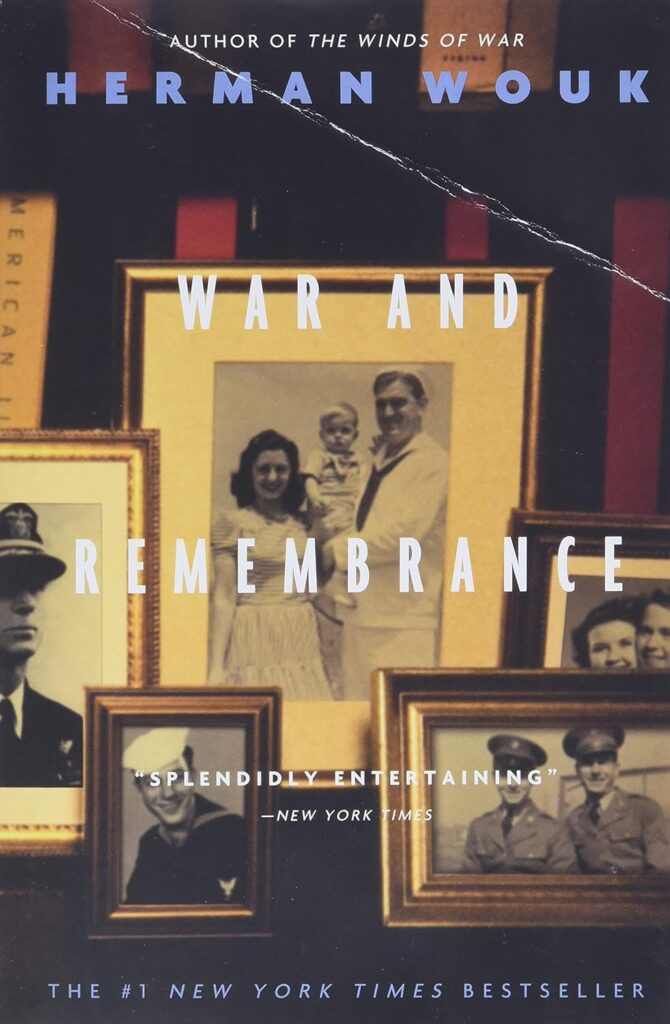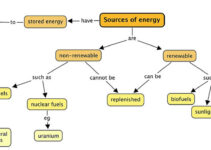I often post book reviews on Goodreads. I decided to post reviews from now on the blog as well for books that inspire. Hopefully, they will be useful to someone trying to find the next book to read. I try hard to avoid spoilers. This week I am reviewing a series of two novels by the writer Herman Wouk called “Winds of War” and the sister novel “War and Remembrance.” These two books form a continuous story of World War 2, spanning from 1939 before the invasion of Poland by Germany to the nuclear bombings on Hiroshima and Nagasaki in 1945.
While a very long read, this stands out as one of the greatest novels I have ever read. Novels like these prove that Wouk is no lesser than the Tolstoys, Vernes, and Dickens of the day. Wouk may very well have drawn inspiration from Leo Tolstoy’s “War and Peace” and could be depicted as the Tolstoy of the 20th century.


“Winds of War“
Herman Wouk was a master storyteller and a brilliant writer. “Winds of War” follows a fictionalized Captain Victor Henry & members of his family across the stage of World War 2 through various battles and documented historical events. The narrative portrays some fictionalized but interesting scenarios, including Captain Henry’s conversation with Hitler through an American envoy (although it was Hitler going off on a tangent for most of it).
This novel covers 1939 to the Pearl Harbor attack on December 7, 1941, and “War and Remembrance” covers the period after the Pearl Harbor attack to the Hiroshima & Nagasaki strikes to end WW2.
Brief Breakdown
Wouk meticulously crafts the characters as believable individuals with backstories, relationships, and authentic personalities. The feeling occasionally is akin to reading a detailed biography written on real-life figures and their journey/experiences of WW2. Meetings with historical figures such as Hitler, Stalin, Churchill, and Roosevelt also feel genuine as if you are there. Their personalities, mannerisms, and way of conversing felt accurate based on historical citations. While we can’t verify these encounters, Wouk does a good job of making it feel authentic.
Wouk’s writing style is exceptional. The events and background are thoroughly researched and follow along with the facts of the war. Readers might find themselves knowing what is coming next (such as the Poland invasion) and urging these fictional characters to do things a different way. It is, of course, all in vain.
Any issues? Recommendation?
Some of the soap opera dynamics and fictionalized romances may be a bit excessive at times. However, it contributes to character development and immerses the readers in that era’s thoughts, beliefs, ideologies, and societal views. Wouk’s ambitious writing successfully transports us through time, providing us with a grand tour in this timeless novel.
I highly recommend this novel if you are okay with exploring a massive epic. The two-part short TV series of the same name from the 1980s was also excellent, though difficult to find outside of YouTube. I would recommend watching that along with reading this.
“War and Remembrance“
Introduction
The journey continues in “War and Remembrance,” the second part of Herman Wouk’s epic masterpiece. The first book Winds of War sets the stage, introducing the characters, their challenges, and the era of World War 2. The second book takes us into the heart of the war and brings the story to a satisfying conclusion.
Wouk’s aim in this novel is clear – remembrance. He wants us to recollect the trials and tribulations of the people during this horrific time in human history. Wouk uses the lives of the fictionalized Henry family and other characters to bring to life those living through World War 2, drawing upon actual events and historical facts. We follow along in their paths through moments of triumph and also heartbreaking mishaps.
Standouts
For this review, I won’t delve into the details of each character’s story, but I will highlight three things that stood out to me.
Writing style
The first notable thing is Wouk’s writing style itself, including the chapters on Auschwitz. These are gut-wrenching chapters, detailing the struggles of Jewish prisoners in the extermination camp. The portrayal is so vivid that readers can feel the desperation and the anguish. The worst part is we, the readers, know what is coming, but we are powerless each step of the way. We want to reach in somehow and stop the ordeal from continuing. But all we can do is watch. The historical accuracy and firsthand experiences of Holocaust survivors may make these chapters difficult to read. Still, they are crucial in bringing the readers to the harsh reality of the situation.
Wouk’s writing makes us feel like we are in a time machine being driven by the power of the written word. As we move along in this epic journey through the war and the times, we readers become immersed in the emotions, pain, empathy, anger, love, and sadness.
Another troubling portion of the book takes place in the Theresienstadt camp, used by the Nazis for propaganda. We feel we are there walking the streets alongside these Jewish prisoners, working to build a massive facade before a scheduled Red Cross visit. The visiting Red Cross officials get taken in by Nazi trickery and later report back to the Allies the wonderful treatment the Jews were getting by the Nazis. I found the Red Cross ordeal disturbing. It trivialized the entire struggle and served as a justification for those in power to look the other way. There were many such deniers, including those in power on the American and Allied sides, who didn’t want to believe that crimes of this magnitude were possible, even with clear evidence shown to them while it was happening. They inexcusably dropped the ball.
I found myself often wondering about the hatred that could drive someone to such atrocities and war for power. I believe in humanity and am very much hopeful for the future of humanity, but low points throughout history make me question that sentiment. World War 2 was one of the lowest points in human endeavor.
History says that truth ultimately triumphed over such evil. As Theresienstadt was taking place, the Nazis were losing the war. That’s when the genocide went into full throttle. Nazis attempted to massacre as many Jews as possible in as little time as possible so they may not later bear witness to the war crimes. However, Soviet soldiers entered from the East and Western soldiers from the West, freeing the concentration camps. The Nuremberg trials later took place, and the results are well-cited for all of time.
War and Anecdotes
Second, Wouk’s depiction of the war itself is remarkable. Battles like Midway, the brutal winter campaign at Stalingrad, the tank battle at El Alamein, the bloody beaches of Normandy, and Leyte Bay are masterfully articulated. One example that stands out is the Battle of Midway, which was a major turning point in the Pacific War. America, while outnumbered 10 to 1, pulled off a victory on a scale never before seen in the history of naval warfare. The intricate strokes of subtle maneuvers and history-altering decisions are mind-boggling to read. Japan never recovered after Midway.
Wouk doesn’t just recount the battles, but he explores the tactics and intricate philosophy of war. For instance, battleships were traditionally considered the backbone of Naval warfare, with aircraft carriers seen as support vessels, and airplanes receiving even less attention. However, a paradigm shift occurred, revealing the crucial role of airplanes and carriers in determining naval battle outcomes. Wouk skillfully discusses this evolution in philosophy beginning at Midway.
Lastly, Wouk interestingly presents the details of the battles using anecdotes from a fictional German General, Armin von Roon, who was writing his unique perspective from prison after the war. Wouk adds to the narrative by critiquing Roon’s nationalistic zeal with the American Captain Victor Henry’s viewpoint. Both provide the facts but very different interpretations. That debate enriches the story, offering us a comprehensive understanding of the history and differing philosophies.
Any issues? Recommendation?
As compelling as this epic is to read, some segments could have been easily shortened or removed. Some of the character’s stories might help with character development and provide realism, but they occasionally extend longer than necessary. Wouk could have told what took him 1,400 pages in just 1,000 pages.
I would highly recommend this book. This was an even better read than “Winds of War”, which doesn’t go as much into the human perspective as “War and Remembrance”. I would also recommend the show of the same name, which was partially shot at Auschwitz for authenticity.



